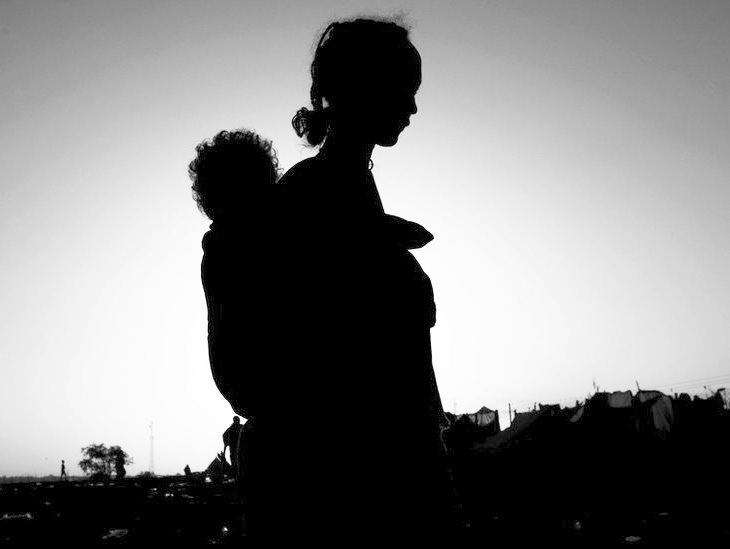
BY BETELHEM BEDLU
For various reasons, but mostly given the inequality of their status among societies, many women are highly affected throughout conflicts. Displacement, separation from family, and exposure to sexual slavery and abuse are the major challenges these women go through in conflicts.
Women and girls constitute close to 80 percent of Internally Displaced Peoples (IDPs) and refugees worldwide, according to United Nations Fund for Population Activities (UNFPA). It is a clear indication that the adverse effects of conflict hit women harder than it does on their male counterparts over the years.
The dramatic changes of armed conflicts casualties among civilians is increasingly outnumbering from that of military personnel. Women and girls became especially vulnerable in such conflicts, source indicates.
Apart from the aforementioned difficulties they face, the women will also go through humiliation, shame, and anguish engendered by sexual violence: flashbacks, difficulty reestablishing intimate relationships, persistent fears, and a blunting of enjoyment in life (Swiss & Geller, 1993).
Given the fact that women play key roles in economic, social especially family life, the women’s experience in conflicts is multifaceted as they are responsible to take good care of families.
Following the law enforcement operations that the government has been taking to put the TPLF junta who convicted a brutal attack on the Northern Command of National Defense Forces in Mekelle city before justice; many have expressed their concern for the safety and well being of civilians.
With the increased displacement and flee of civilians to the nearest border at that moment, various international humanitarian organizations and governments have been expressing concerns for the safety of civilians in Tigray state.
UN has also been urging the government and the other parties to protect women and children and provide humanitarian assistance as well as to enable the free and safe movement of civilians fleeing in search of safety and assistances.
According to UNFPA reports, close to 39 thousand people have fled to Sudan. Of the refugees, more than 17 thousand were children and there were number of pregnant women, survivors of gender based violence.
It is to note that the government of Ethiopia has remained cautious on the protection of civilians, heritages and public infrastructures. When the TPLF junta used Tigray people as well as religious and service providing institutions as shield, it has restricted itself from taking any measures.
Briefing the EU Commissioner, Janez Lenarcic, on government’s effort in addressing the humanitarian assistance for Tigray State, Peace Minister Muferiat Kamil noted that the government has been exerting efforts to improve the humanitarian situation and restore daily services.
Efforts have been undertaken by the government on the redevelopment of Tigray, the rehabilitation of displaced peoples and the refugees in Sudan.
She has also illustrated the activities that have been put in to practice to repatriate and rehabilitate many people displaced due to the conflict in various parts of Ethiopia.
Following the completion of the law enforcement operations that had been carried out in Tigray State against the TPLF junta, Prime Minister, Abiy Ahmed has expressed commitment to relocate and rehabilitate those who have fled to neighboring countries fearing for their lives.
On the one hand, Ministry of Peace and UN have signed an agreement to provide the necessary support for people who are impacted during the law enforcement operations.
The agreement is said to enable unimpeded, sustained and secure access for humanitarian personnel and services to areas under the control of the Federal government in Tigray, the bordering areas of Amhara and Afar states.
According to Redwan Hussien, Spokesperson of State of Emergency Task Force, a committee has been established to address the humanitarian concern in Tigray State.
As Susan McKay wrote in article titled ‘The Effects of Armed Conflict on Girls and Women,’ the impact of armed conflict on children, especially infants and young children cannot be considered in isolation from women. Because women are the primary child caregivers, when they are affected by war, so are children. In many cultures, mothers, older sisters, aunts, and grandmothers share responsibility for children’s physical and psychosocial development.
As men leave to fight, women are increasingly responsible for maintaining the social fabric of their communities. During and after wars, women are instrumental in providing a sense of family and community continuity that supports children’s healing from war-related trauma.
Bearing these challenges into consideration, the government of Ethiopia is currently working aggressively to repatriate citizens fled to neighboring country, Sudan. However, as the task could not be left merely for the government, but requires the active involvement of the whole society, each of us should exert utmost effort to realize the endeavors.
The Ethiopian Herald December 5/2020





